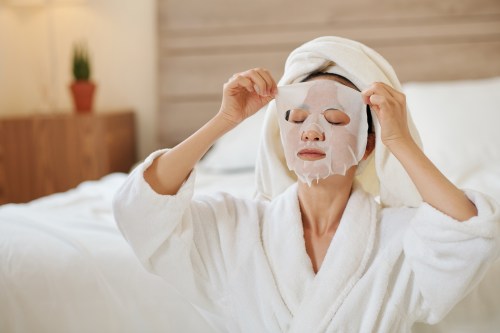Let’s be real: Sleep paralysis seems absolutely terrifying. When you dream, your body goes into full-on paralyzation mode to protect you so you don’t act out what you see. But sometimes people remain in this paralyzed state for a few minutes before they fall asleep or after they wake up—and during that time, they have to endure lying there helplessly, sometimes experiencing creepy hallucinations until they snap out of it.
The condition is pretty common: About 7.6 percent of the world has experienced it, yet the cause isn’t known, according to a review of 35 studies co-authored by Brian Sharpless, PhD, and associate professor at Argosy University, Northern Virginia. Heck, even Kendall Jennersays she’s been through it.
Sleep deprivation and irregular sleep-wake cycles (both characteristics of the neurological condition narcolepsy) can make you more susceptible to sleep paralysis, but there are ways to make the condition less frightening.
Sleep deprivation and irregular sleep-wake cycles (both characteristics of the neurological condition narcolepsy) can make you more susceptible to sleep paralysis, the Cleveland Clinic reports. The good news is that aside from fear and anxiety, it poses no danger to those who endure it, and there are ways to make it less frightening.
While you can’t stop sleep paralysis from happening, simply knowing what it is can make the experience more tolerable. “Either look at it dismissively, ignore it, or find humor in it,” Dr. Sharpless told The Cut. “You might say to yourself, ‘Am I really seeing a demon in the bedroom now? Really?'” During those hallucinations, you can also change your focus to something else—like a body part—which shifts the attention of your brain to something less scary. Or, simply keep reminding yourself that it’s not real. If you’re a Harry Potter fan, perhaps you can imagine waving your wand and uttering “Ridiculus!” at your fear-feeding boggart.
Dr. Sharpless says these tricks have helped his patients, making them think more about what’s real and what’s not during an episode. So if sleep paralysis happens to you, just know it will be over soon—and have a nice (albeit silent!) laugh at whatever is lurking in the darkness until it goes away.
To seriously invest in your sleep, consider these pajamas to improve your shut-eye. Or, find out how to get the best night of sleep ever.
Sign Up for Our Daily Newsletter
Get all the latest in wellness, trends, food, fitness, beauty, and more delivered right to your inbox.
Got it, you've been added to our email list.











